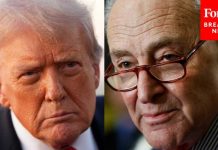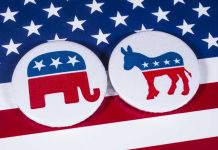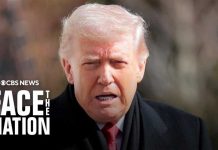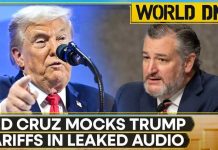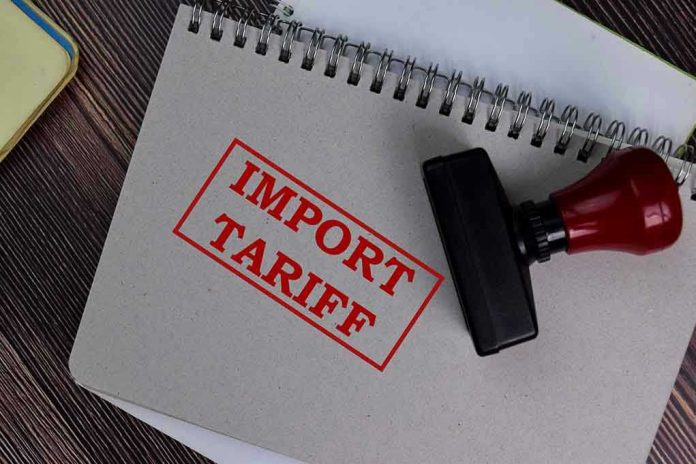
President Trump’s new tariffs on India risk pushing a critical U.S. ally into the arms of China and Russia, raising alarms among conservatives about the unintended consequences for American strength and security.
Story Snapshot
- Trump administration imposes 25% tariffs on Indian imports, citing India’s Russian oil purchases.
- Senator Rand Paul warns the move could drive India closer to China and Russia, undermining U.S. interests.
- Tariffs spark immediate economic pain for U.S. businesses and consumers, with sectors like tech and pharmaceuticals hit hard.
- Diplomatic tensions escalate, threatening to weaken America’s strategic influence in Asia.
Trump’s Tariffs on India: Policy Details and Conservative Reactions
President Trump signed an executive order imposing a 25% additional tariff on specific Indian imports, with the policy taking effect on August 27. The administration’s stated rationale is to pressure India into reducing its purchases of discounted Russian oil, aligning with broader U.S. sanctions targeting Moscow. While the White House frames this as a necessary assertion of national security and foreign policy priorities, many conservatives see it as a double-edged sword. There is significant concern that such tariffs, while tough on foreign adversaries, could backfire by hitting American workers, businesses, and strategic interests.
Senator Rand Paul, speaking on Newsmax TV, articulated a view shared by many on the right: alienating India could inadvertently empower America’s greatest rivals. Paul warns that punitive tariffs may “drive India right into the arms of China and Russia,” undermining years of careful diplomacy aimed at counterbalancing Beijing’s growing influence. India’s strategic autonomy—its policy of balancing ties with the U.S., Russia, and China—is now being tested by Washington’s trade pressure. The risk, Paul argues, is that economic confrontation will erode U.S. leverage in the Indo-Pacific, a region already under threat from Chinese expansionism and Russian opportunism.
Historical Context: U.S.-India Relations and Conservative Concerns
Historically, U.S.-India relations have evolved from Cold War estrangement to a robust partnership, especially in countering China. However, India’s economic engagement with Russia, particularly for energy security, has long been a sticking point. After Russia’s 2022 invasion of Ukraine, the U.S. enacted sweeping sanctions and sought to isolate Moscow. India, prioritizing affordable energy for its vast population, increased its Russian oil imports despite Western pressure. The new tariffs—explicitly linked to India’s dealings with Russia—represent a high-stakes move to enforce American sanctions globally. For constitutional conservatives, this raises concerns about using executive power in ways that could undermine free markets and long-standing alliances, potentially violating the spirit of limited government and prudent foreign policy.
While tariffs are not new as a tool of U.S. foreign policy, history offers cautionary tales. The Smoot-Hawley Tariff Act of the 1930s, for example, famously deepened the Great Depression and soured international relations. Today, many Republicans and free-market advocates recall these lessons, warning that protectionist measures, even when well-intentioned, can trigger economic retaliation, disrupt global supply chains, and erode America’s standing. The Trump administration’s willingness to leverage trade for strategic goals is seen by supporters as bold but fraught with risk, especially when it comes to alienating partners essential for countering communist and authoritarian regimes.
Economic and Geopolitical Fallout: Industry, Consumers, and U.S. Influence
The immediate impact of the tariffs is being felt by U.S. importers of Indian goods, notably in technology, pharmaceuticals, and textiles. Increased costs threaten jobs and consumer prices at home, fueling frustration over persistent inflation and supply chain disruptions—issues already at the forefront for many conservative voters. Industry experts caution that the pain will not be one-sided; India is reportedly considering retaliatory measures, which could further escalate the trade conflict. More broadly, the policy risks undermining the very strategic partnership that has been central to U.S. efforts to contain Chinese and Russian ambitions in Asia.
Diplomatic tensions have climbed as India expresses concern and trade negotiations stall. The long-term risk: India may deepen ties with Beijing and Moscow, eroding U.S. influence in a region where every lost ally strengthens adversaries. Critics emphasize that American power and prosperity depend on strong alliances, robust markets, and the defense of core constitutional values. Moves that isolate allies or disrupt economic freedoms, even in pursuit of national security, demand careful scrutiny. Conservatives argue that a principled, America-first approach should always weigh the costs of government overreach and unintended consequences against the benefits of toughness on rivals.
Rand Paul: Putting Huge Tariffs on India Will Push Them to China, Russiahttps://t.co/FFXwbqcz9z
— Michael P Bryant (@MichaelPBryant2) September 4, 2025
Expert analysis underscores the precarious balance: while proponents say tariffs enforce discipline and protect U.S. interests, critics like Rand Paul counter that they may ultimately harm the conservative priorities of limited government, economic freedom, and strong security alliances. The lesson from history and current events is clear—America’s strength lies not only in standing firm against adversaries but also in cultivating partnerships that advance freedom and prosperity for all. As this debate unfolds, vigilant patriots will watch for any policy that risks constitutional liberties or undermines the nation’s strategic foundations.
Sources:
New 25 Percent Additional Tariffs on Imports from India
Polsinelli: New 25 Percent Additional Tariffs on Imports from India
U.S.-India Relationship Sours as New Tariffs Kick In
Why Senator Rand Paul Opposes Tariffs: Economic, Constitutional, and Political Concerns
Rand Paul Criticises Trump Administration’s Tariff Decision


